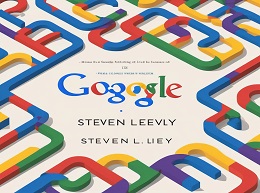Selling the Invisible: A Field Guide to Modern Marketing

Unpacking "Selling the Invisible": A Guide to Mastering Modern Marketing
"Selling the Invisible: A Field Guide to Modern Marketing" by Harry Beckwith is a seminal work that sheds light on the intricacies of marketing services and intangible products. This comprehensive review will explore the key concepts, practical advice, and illustrative examples presented in the book, providing a thorough understanding of how businesses can successfully market the invisible.
Understanding the Invisible: The Nature of Services Marketing
At its core, "Selling the Invisible" addresses the unique challenges of marketing services, which are inherently intangible, perishable, and often customized. Beckwith emphasizes the importance of understanding these characteristics to effectively sell and market services.
The Intangibility Challenge
Services, unlike products, cannot be seen, touched, or tested before purchase, making trust and credibility crucial. Beckwith argues that the intangibility of services requires a shift in marketing strategies, focusing more on relationship building and perceived value.
Example: A law firm cannot show a tangible product to potential clients. Instead, it must highlight its expertise, successful case outcomes, and client testimonials to build trust and credibility.
Building Trust: The Cornerstone of Service Marketing
Trust is a critical factor in selling services. Beckwith provides practical strategies for building and maintaining trust with clients, emphasizing the importance of consistency, reliability, and authenticity.
Consistency and Reliability
Consistency in service delivery reassures clients that they can expect the same quality each time they engage with the service. Reliability, on the other hand, ensures that promises are kept and services are delivered as expected.
Example: FedEx built its brand on the promise of reliable overnight delivery, encapsulated in its slogan, "When it absolutely, positively has to be there overnight." This reliability has been a cornerstone of its marketing strategy.
Authenticity and Transparency
Authenticity involves being genuine in all interactions with clients, while transparency means being open about processes, pricing, and potential outcomes. These qualities help build a strong, trustworthy relationship with clients.
Example: Zappos is known for its exceptional customer service and transparent return policy, which have helped build a loyal customer base that trusts the brand.
Differentiation: Standing Out in a Crowded Market
In a market saturated with similar services, differentiation becomes crucial. Beckwith offers insights into how businesses can set themselves apart from competitors by focusing on unique strengths and value propositions.
Identifying Unique Strengths
Businesses need to identify and highlight their unique strengths, which could be exceptional customer service, specialized expertise, or innovative approaches.
Example: Southwest Airlines differentiates itself with its no-frills, customer-friendly approach, focusing on low fares and friendly service. This unique positioning has helped it stand out in the competitive airline industry.
Crafting a Compelling Value Proposition
A compelling value proposition clearly communicates the benefits of the service and how it solves the client’s problems better than alternatives. This requires a deep understanding of client needs and preferences.
Example: Dropbox’s value proposition, “Your files, anywhere,” succinctly communicates the convenience and accessibility of its cloud storage service, appealing directly to users' need for easy access to their files.
Communication: The Art of Effective Messaging
Effective communication is essential in services marketing. Beckwith emphasizes the importance of clear, concise, and compelling messaging that resonates with the target audience.
Simplicity and Clarity
Complex or jargon-laden messages can alienate potential clients. Beckwith advocates for simplicity and clarity in all marketing communications, ensuring that the value of the service is easily understood.
Example: Apple’s marketing is known for its simplicity and clarity. Product descriptions and advertisements focus on clear, easy-to-understand benefits, such as “12 hours of battery life” for a MacBook.
Storytelling
Storytelling is a powerful tool in marketing services. It helps humanize the brand, making it more relatable and memorable. Beckwith encourages businesses to use stories to illustrate the benefits and impact of their services.
Example: Nike’s "Just Do It" campaign uses compelling stories of athletes overcoming obstacles, which not only promote the brand but also connect emotionally with the audience, making the brand message more impactful.
Enhancing Customer Experience
A significant part of marketing services is enhancing the customer experience. Beckwith provides actionable advice on how to create memorable and positive experiences that foster customer loyalty.
Personalization
Personalized services make clients feel valued and understood. Beckwith highlights the importance of tailoring services to meet individual client needs and preferences.
Example: Amazon excels at personalization, using customer data to recommend products and services tailored to individual preferences, which enhances the overall shopping experience.
Exceeding Expectations
Going above and beyond to exceed client expectations can lead to delighted customers who are more likely to become repeat clients and refer others. This includes small gestures of appreciation or unexpected upgrades.
Example: The Ritz-Carlton is renowned for its exceptional customer service, often surprising guests with personalized touches, such as remembering special occasions or preferences, which create lasting positive impressions.
Leveraging Technology and Data
In the modern marketing landscape, technology and data play a crucial role in understanding and reaching clients. Beckwith discusses the importance of leveraging these tools to enhance marketing efforts.
Data-Driven Insights
Collecting and analyzing data helps businesses understand client behavior, preferences, and pain points, enabling more targeted and effective marketing strategies.
Example: Netflix uses data analytics to understand viewing habits and preferences, which informs its content recommendations and production decisions, leading to higher customer satisfaction and retention.
Digital Marketing
Digital marketing channels, including social media, email marketing, and content marketing, are essential for reaching and engaging with clients. Beckwith advises integrating these channels into a cohesive marketing strategy.
Example: HubSpot uses a comprehensive digital marketing strategy, including informative blogs, social media engagement, and email campaigns, to attract and nurture leads, positioning itself as a leader in inbound marketing.
Continuous Improvement and Adaptation
The final chapters of the book focus on the importance of continuous improvement and adaptation in services marketing. Beckwith emphasizes the need for businesses to stay agile and responsive to changing market conditions and client needs.
Feedback and Iteration
Regularly seeking and acting on client feedback helps businesses improve their services and address any issues promptly. This iterative process ensures that the service remains relevant and valuable.
Example: Tesla actively solicits customer feedback to improve its vehicles and services. This feedback loop has been instrumental in developing features that meet customer needs and expectations.
Staying Ahead of Trends
Being proactive and staying ahead of industry trends can give businesses a competitive edge. Beckwith encourages businesses to keep an eye on emerging technologies, market shifts, and changing client preferences.
Example: Starbucks stays ahead of trends by continuously innovating its menu and embracing technology, such as mobile ordering and payment, to enhance customer convenience and engagement.
Mastering Modern Marketing
"Selling the Invisible: A Field Guide to Modern Marketing" by Harry Beckwith is an invaluable resource for businesses looking to master the complexities of services marketing. By understanding the unique challenges of selling intangible products and adopting the strategies and insights presented in the book, businesses can build trust, differentiate themselves, communicate effectively, enhance customer experiences, leverage technology, and continuously improve.
Whether you are a seasoned marketer or new to the field, "Selling the Invisible" provides practical guidance and real-world examples that can help you successfully market services and achieve long-term business success. By applying the lessons from Beckwith’s book, you can navigate the modern marketing landscape with confidence and drive significant growth for your business.












